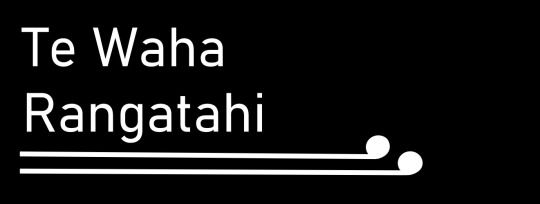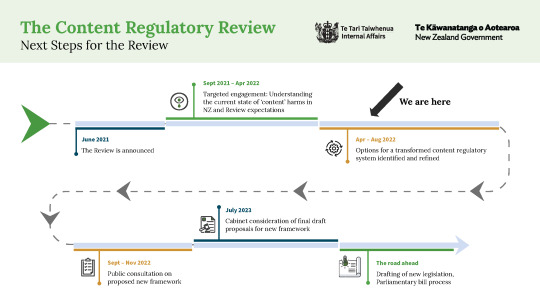Text
The relationship between Covid-19, DIY Citizenship and misinformation/disinformation explained.

Today, digitally mediated DIY (do it yourself) practices have become more mainstream. The internet and social media platforms such as Twitter and Facebook are being used openly for media dissemination and political purposes. The Twitter link is from news media company Stuff, it raises some interesting arguments from the anti-vax community who have been identified for “using their social media platforms to disperse misinformation about vaccinations and anti-government conspiracies” (Stuff). According to Dr Greg Nyilasy from the University of Melbourne, misinformation is “information which is spread innocently despite being incorrect”. Examples of Covid-19 misinformation include misunderstandings of the virus, false remedies and unrealistic expectations about how the virus spreads. On the other hand, disinformation is “spread intentionally by people in bad faith”, examples of this include Covid-19 related racism and blaming government agencies for the spread of the virus.
My view is that the anti-vax community is not doing anything to positively contribute to citizenship, or to help people deal with the stresses of a pandemic situation by spreading misinformation in a democratic society. In relation to this article, anti-vax promoter Donna Pokere-Phillips claimed, ‘without providing evidence’, that her father died because of the vaccine. Most of her claims like the ‘vaccine being a bioweapon’, and that fact she disagrees that millions of people have received the Covid vaccines without incident seems concerning. The fact that none of these claims have any actual scientific evidence could be a testament to this. I would consider what Pokere-Phillips is doing to be a modern way of media communication through DIY citizenship. Ratto (2014) explains, ‘DIY citizenship’ as a term that is intended to highlight the diversity of ways citizenship is enacted and performed.
Ratto further explains that DIY citizenship invites us to consider how and when individuals and communities participate in shaping, changing, and reconstructing worlds, and environments. This can be done in creative ways that challenge the status quo and contemporary understandings of “how things must be. Using Rattos' example, I would argue that spreading misinformation in a participatory means is a way of utilising DIY citizenship, by taking matters into your own hands. I have come across a lot of misinformation myself in the media throughout this pandemic, filtering through the correct facts can sometimes be challenging with the amount of content that we are exposed to daily about the effects of Covid-19 and vaccines. An example of communities participating in DIY citizenship in recent times would be the anti-vax and anti-mandate protest that took place in Wellington NZ. A collective action was formed by citizens through networking and participation in order to end the mandates with no success. The internet and social media were used as a platform through DIY citizenship to inform and communicate messages to practice freedom and democracy.
youtube
Kony 2012 tried to invoke a kind of distributed citizenship, in which individuals from across the globe were to engage in a collective project for political change (Ratto). Kony 2012 is a 30-minute documentary about the Ugandan warlord Joseph Kony made by Invisible Children, it became one of the fastest-spreading videos in 2012. The film was particularly popular with young people, who spread it through their social networks. The idea of “do it yourself” is noticeable in many areas, but it is particularly apparent in politics through this example. Here, doing it yourself means, making up your own mind, and doing your own research, taking initiative for your own actions. I feel that this is another way in which citizenship has changed, as social media and the internet are gaining popularity individuals are finding new ways of engaging in collective political change.
Since the relationship between democracy and the media can be complex. Many citizens that stay in democratic societies don’t want any government control of media outlets as they fear that certain government regulations will cause issues within democracy. A representation of this kind of citizen is Brian Tamaki. According to this article from the NZ Herald, “Brian Tamaki the founder of controversial Auckland-based Destiny Church, is accused of intentionally failing to comply with the Covid-19 Public Health Response Act” the article explains how Police said he violated Covid-19 lockdown orders on multiple occasions in 2021 by attending Auckland Domain rallies on 3 separate occasions and violating his bail conditions by continuing to attend the rallies. In my view this is another example of DIY Citizenship, showing how citizens are breaching government restrictions. Citizens in more powerful positions are taking democracy into their own hands.
Neelakshi explains how urban spaces like community gardens received increased attention during the COVID-19 pandemic. Citizens, garden organizers and non-government organizations across Canadian cities advocated for re-opening community gardens in April 2020, and for them to be listed as an essential service, rather than a recreational one. Ratto’s research also explains how creating community gardens, filming personal music videos, and even knitting can be understood and evaluated as emergent modes of political activity. I am part of the local Ellerslie community in Auckland, New Zealand. We have a dedicated Facebook page with information regarding community activities like gardening that takes place locally, as well as information that gets updated regularly about the community fruit and vegetable stands. This is where the local citizens of the community share their spare produce from their gardens. Giving value to fruit and veg that might otherwise go to waste.
I previously mentioned how DIY citizenship invites us to challenge the status quo. This can be done in creative ways. For example, US citizens were supporting Ukrainians not just through traditional means like donating money to the Red Cross, but by using networks like AirBnB to send money directly to Ukrainian families. This is a great example of how in the age of digital and social media, people can find creative ways to support humanitarian efforts through ways that go beyond the traditional model of donation. I would also consider this as another way that DIY citizenship is performed by citizens helping each other financially.
0 notes
Text
My view on the relationship between citizens and the New Zealand media, with politics, misinformation and the digital divide.

The point of view expressed in this article above by Mediawatch, aligns with my own views. I also believe that more needs to be done to reduce the amount of online misinformation that we are subjected to. My view is that the government needs to enforce greater regulations to reduce online harm. I agree with political journalist Tova O’Brien from Today FM when she says that “there is no minister or government agency specifically tasked with monitoring and dealing with the increasing threat posed by disinformation and misinformation. That should change,”. The article illustrates how for the first time, online outlets including social media could also be classed as ‘media service providers’ who are needed to abide by agreed standards. In my view, I think this move is long overdue. According to the Department of Internal Affairs they are reconsidering the role of the complaints bodies which uphold standards for mainstream media in New Zealand today: the Broadcasting Standards Authority, the Advertising Standards Authority, the Media Council and the Classification Office. The photo below shows that we are currently in the process of ‘public consultation on the proposed new framework”, the final drafts are only due to be taking place in July 2023 for the final content review regulations. I feel like it is about time that we start dealing with the increasing threat caused by disinformation and misinformation.

This makes me ponder the question of how well we are served by the media in New Zealand. Brett Edwards argues that if people are not well informed about what powerful institutions are doing, how can they operate as well-informed citizens in a democracy? I would have to agree with Edwards with his stance on New Zealand's political coverage being too focused on how the game of politics is played, and too little on the substance, and how that affects people's lives. Many people today find it hard to believe what new media originations report, they have a sense that journalists do not report the news accurately. Too often news reporting is sensationalist or repetitive, do we really need daily news reports on every single ram raid that happens? As Edwards states, “what is needed is a strong sense of leadership across all media organisations that puts quality public service journalism first, something that goes beyond clickbait and trying to see which stories get the most hits on the web”.
It was clear that the terrorist who carried out the Christchurch Mosque attack in March 2019 went to great lengths to make sure that his white supremacist ideology would reach far online. It was clear he had been inspired by racist conspiracy theories, and that he tried to inspire others in turn by posting terrorist manifestos online. I feel that things like this are extremely harmful when posted online. This article explains how the shooter who killed 11 Jews at the Tree of Life synagogue in Pittsburgh had been radicalized on the social media site Gab, which advertised itself as the “free speech” alternative to Twitter. Dylann Roof killed nine people at the historically Black Emanuel African Methodist Episcopal Church in Charleston, South Carolina, in 2015, after he self-radicalized online. All these examples illustrate how quickly misinformation can progress to becoming a threat to democracy and cause devastating consequences for communities.
According to the classification office 79% of New Zealanders get news or information from social media, and most New Zealanders think social media users and corporations often spread false and misleading information intentionally. Unsurprisingly, the most common platform was Facebook (78% of social media users), followed by YouTube (45%), Facebook Messenger (36%) and Instagram (34%), Another article from RNZ explains how new research into the protests at the parliament in Wellington, New Zealand, has explored how social media created tensions and found that many local Facebook accounts spreading disinformation were the main cause. I would also have to agree with this as I personally came across a lot of misinformation on Facebook, especially to do with Covid-19 related information. Myllylahti and Treadwell argue that whether people trust the news is linked to political institutions and politicians - and increasingly to social media platforms. Since so many New Zealanders consume news on social media this argument aligns with my own views on the issue, I feel politics and social media already have major effects in a democratic society. The spread of misinformation is a cause for concern and has the potential to keep causing major problems for all citizens in the long term.
We might even ask what happens to the people who do not have social media accounts, or use the internet? I’m not one of those people but I’m sure there are still many people who don’t use the internet or social media. Would this cause them many disadvantages? Dijk defines the digital divide as a division between people who have access and use of digital media and those who do not. He argues that the digital divide is increasingly a problem for society. Today, many new highly skilled jobs require digital skills and so you cannot take advantage of skills without knowledge of the internet or computing. Social media is becoming increasingly important for communication and people may lose friends or mis invitations or special events because they don’t use social networking sites. This shows that avoiding the use of social media and the internet has the potential to cause major disadvantages. I personally am very reliant on social media and the internet in my life. It’s my source of income when I use Facebook marketplace for e-commerce. It serves me entertainment purposes, and it’s also one of my main modes of communication with friends and family so it is undoubtedly a big part of my life.
1 note
·
View note